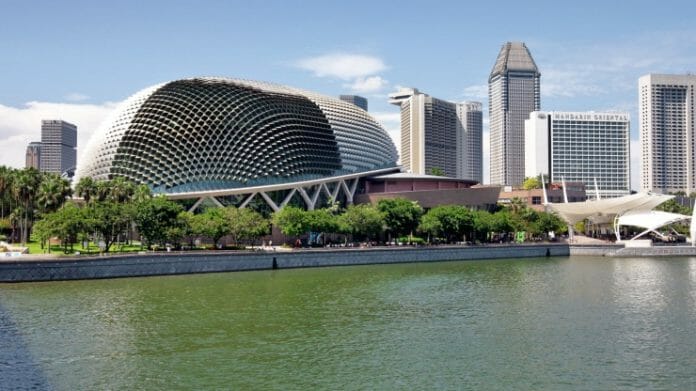Singapore’s core inflation rose to 5.5 percent year-on-year in January, the highest since November 2008, official data showed on Thursday (Feb 23).
This was up from the 5.1 per cent recorded in December last year. Core inflation had remained unchanged for three months from October to December last year.
The rise in January was driven by the Goods and Services Tax (GST) rate increase, as well as higher inflation for services, food and retail and other goods, said the Monetary Authority of Singapore (MAS) and the Ministry of Trade and Industry (MTI).
The core consumer price index rose by 0.8 per cent on a month-on-month basis, due in part to the one-off effect of the one percentage point GST increase and the seasonal effects associated with Chinese New Year, added MAS and MTI.
The last time Singapore’s core inflation hit 5.5 per cent was in November 2008.
Core inflation excludes accommodation and private transport costs.
The headline consumer price index, or overall inflation, was 6.6 per cent year-on-year in January, higher than the 6.5 per cent recorded in December 2022. This reflected the rise in core inflation and the higher accommodation inflation.
Demand conditions in major economies have softened while supply chain frictions have continued to ease,” said MAS and MTI.
“Prices of energy and food commodities have come off the peaks in 2022 but remain elevated. Meanwhile, labour markets in major advanced economies are still tight, keeping wage pressures strong.
“Overall, as accumulated costs pass through global value chains, Singapore’s imported inflation is expected to remain firm for some time.”
On the domestic front, unit labour costs are expected to increase further in the near time, alongside robust wage growth.
Although electricity tariffs have come down from their peak in the third quarter of last year, the cost of utilities is likely to remain elevated.
Businesses are expected to continue to pass on these costs to consumers amid resilient demand.
Car and accommodation cost increases are likely to stay firm in the quarters ahead on the back of tight Certificate of Entitlement quotas for cars and strong demand for rental housing.
MAS and MTI said the month-on-month step up in core inflation in January was expected.
Core inflation is set to stay above 5 per cent year-on-year in the first quarter of 2023, and remain elevated for the first half of this year.
It is forecasted to slow “more discernibly” in the second half of the year as the current tightness in the domestic labour market eases and global inflation moderates, said MAS and MTI.
For 2023 as a whole, overall inflation is projected to average between 5.5 per cent and 6.5 per cent, while core inflation is expected to come in at between 3.5 per cent and 4.5 per cent.
“There are upside risks to the inflation outlook, including from fresh shocks to global commodity prices and more persistent-than-expected external and domestic sources of inflation,” said MAS and MTI.









